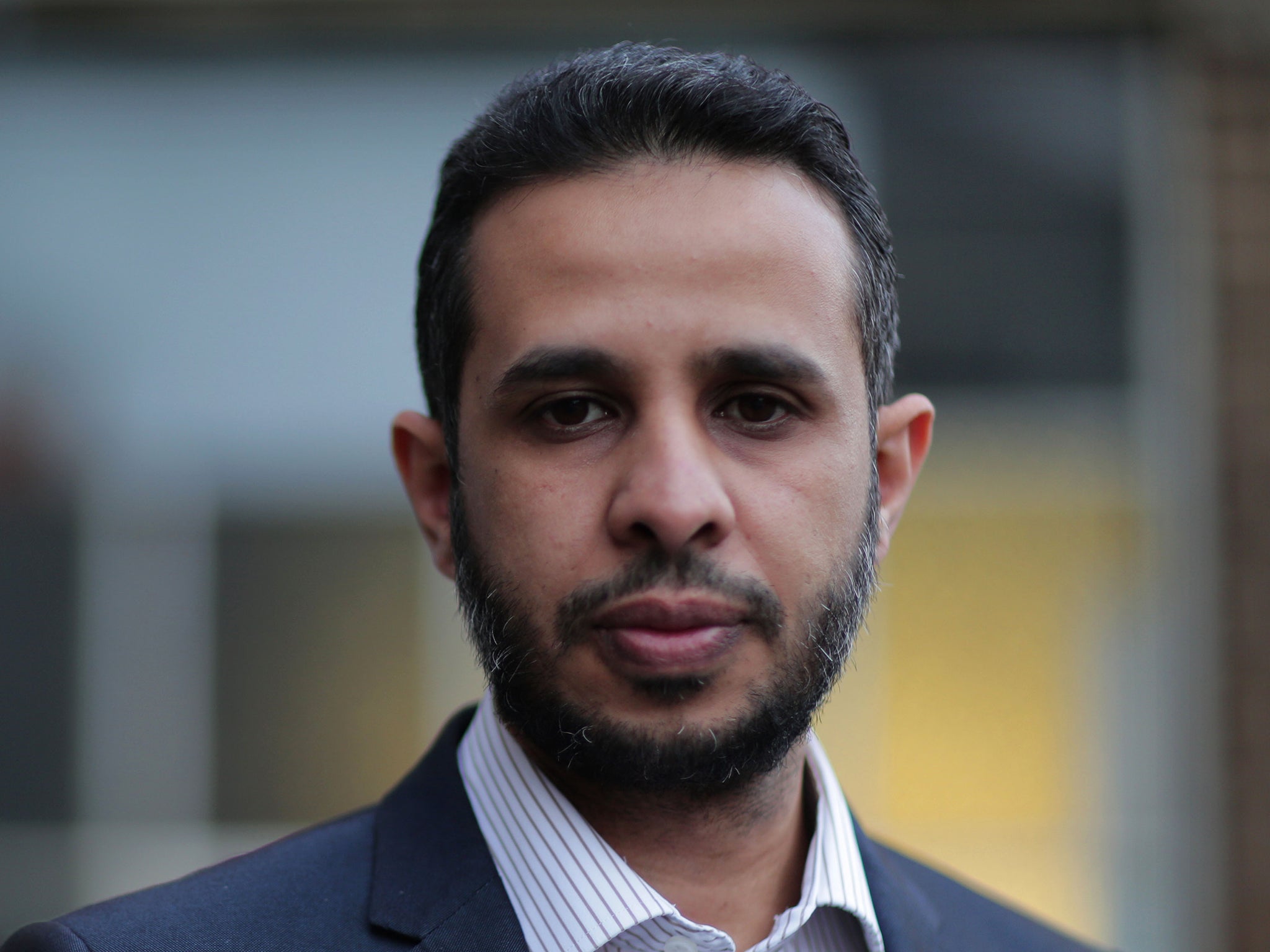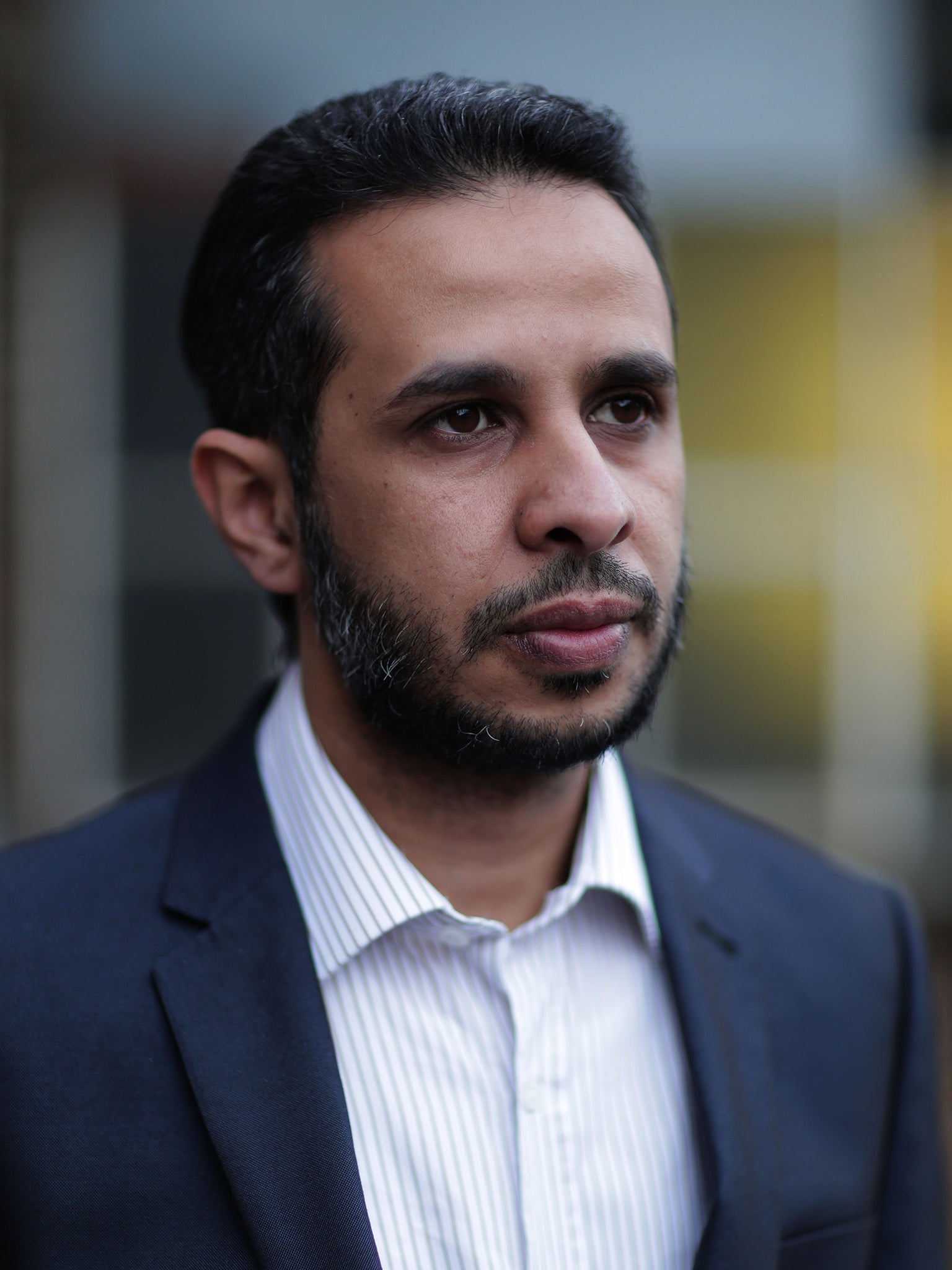Saudi dissident 'may be forced to return home' by UK Government despite torture fears
Exclusive: Former air force officer Yahya Assiri fled to the UK after becoming a prominent critic of the Saudi Arabia regime

A Saudi dissident left in limbo by the Home Office for almost two years has criticised the delay and believes the Government may be trying to force him and his young family to return home – despite the prospect of imprisonment and torture.
Former air force officer Yahya Assiri became a prominent critic of the Saudi Arabia regime and fled to the UK with his wife and two children in January last year when he applied for asylum. The Home Office wrote to Mr Assiri this week informing him that his case had finally been “reviewed” and would write again in three months’ time – on the second anniversary of his arrival.
The letter, seen by The Independent, still does not specify whether a decision will be made come the New Year. The department did, however, attach another application for a ‘declaration of withdrawal of asylum, humanitarian protection and human rights claims’ on the flip-side, in case Mr Assiri had changed his mind.
He said: “It’s bad enough for me, but I have a family to look after. I could go to court [to try to get an answer] or I could take the risk and go back [to Saudi Arabia]. It’s difficult because I don’t know what’s happening.
“Sometimes I think they are trying to upset me, to force me to return to my country. Most other asylum cases I hear of, involving people from other countries, are dealt with within six to eight months. I don’t know why my case is taking so long.”
Mr Assiri, 34, founded a human rights organisation called Al Qst (“The Just”), which runs a network of underground political activists in Saudi Arabia and advises families whose relatives are facing persecution. Speaking to the Independent near his office in Wembley, north west London, Mr Assiri said the group gets by with the help of volunteers, a few part-time workers and limited funding.
He commutes from Birmingham where he lives with his family. Having run out of savings to survive the travel costs need to come from the £140 a week benefits he and his family rely on.
The UK and Saudi Arabia face a critical moment in their relationship following David Cameron’s decision this week to cancel plans to bid for a £5.9m Saudi Arabia prisons contract. The announcement followed an outcry from the family of a British pensioner jailed in Saudi Arabia for possession of homemade wine would receive a public flogging.
Relatives of 74-year-old Karl Andree, still in jail 15 months after receiving a 12-month sentence, said he would not survive the punishment.
Ten places where most executions were carried out in 2013
Show all 10Mr Assiri said the decision is a “turning point” in UK-Saudi relations and hoped other countries would follow the Prime Minister’s lead in what many have viewed as linking bilateral relations with Saudi Arabia’s poor human rights record.
“I believe it is a turning point. Executions in Saudi Arabia are at a record high, around 175 in the last 12 months, so it will send a strong message. To cancel this [prisons] contract might not be a big deal for Saudi Arabia but it will show them that countries are prepared to do things differently.
“The United States will never change its attitude to Saudi Arabia. They will always support them, but other European countries could change their approach.”

Mr Assiri believes the Andree case was the “tip of the iceberg” when it comes to Saudi Arabia’s recent human rights outrages. He cites this week’s jailing of two activists for eight and nine years respectively on a range of charges, including tweeting a desire for reform, as further evidence of an increasingly autocratic and brutal regime.
“If this behaviour continues I think Saudi Arabia faces another ‘Arab Spring’ situation, like what happened in Tunisia if it does not reform,” Mr Assiri said. “If people see that others like them are being prosecuted they are going to do something about it.”
Despite the frustrations with both his personal situation and what is happening in Saudi Arabia Mr Assiri remains optimistic he will return home.
“When my brothers are brave enough to call we can only speak for a few seconds to check our families are both ok,” he said. “I really miss my family, I really miss my country. It’s not easy to live as a foreigner in another country. Of course I want to go back and I think things will change sooner rather than later.”
Subscribe to Independent Premium to bookmark this article
Want to bookmark your favourite articles and stories to read or reference later? Start your Independent Premium subscription today.

Join our commenting forum
Join thought-provoking conversations, follow other Independent readers and see their replies
Comments